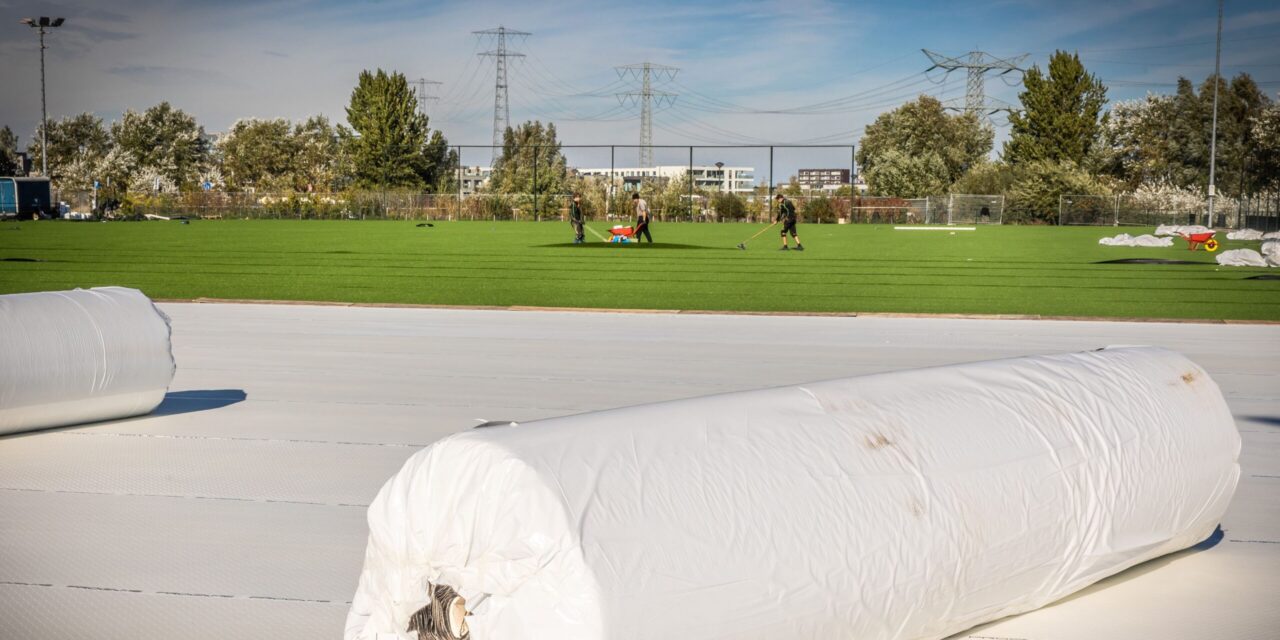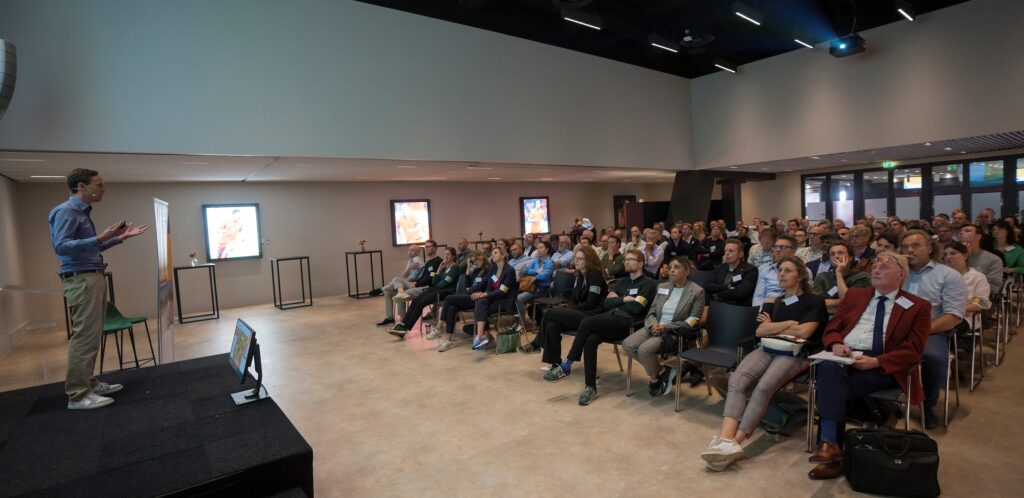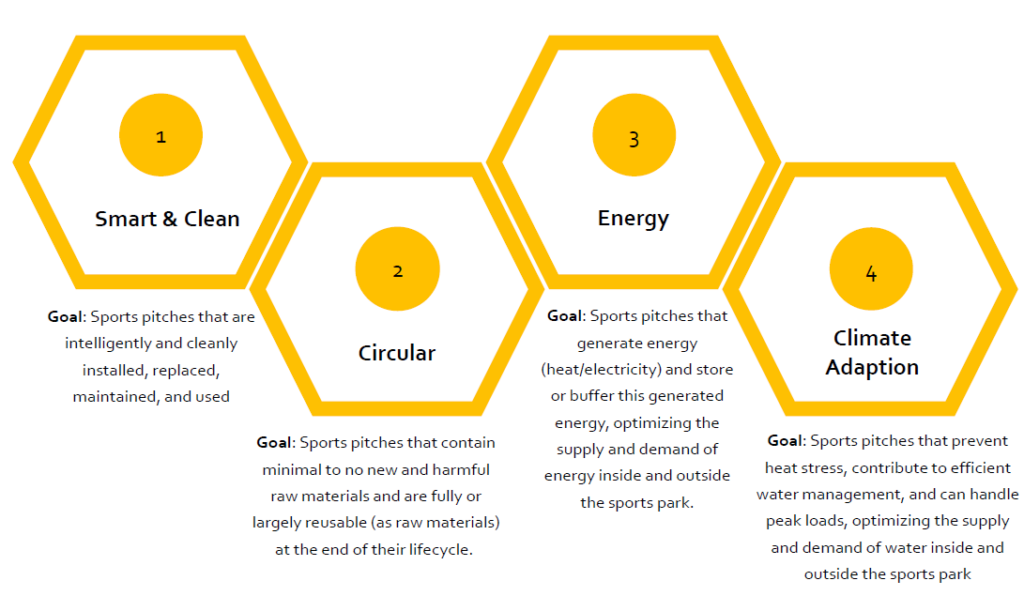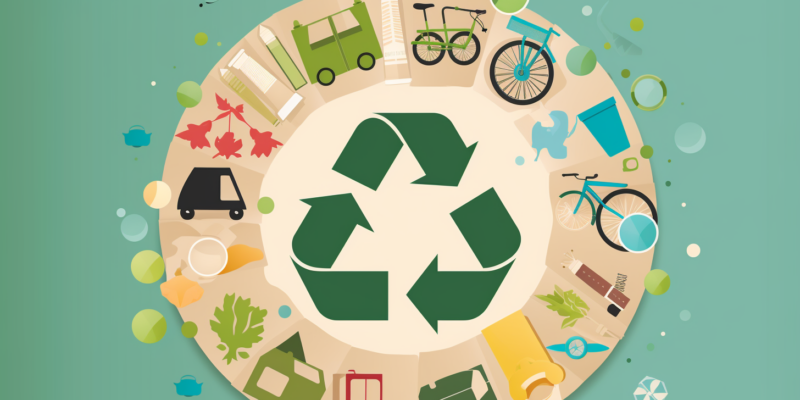Amsterdam and Haarlem deploy ‘innovation partnership’ for sustainable and circular artificial grass pitches

The City of Amsterdam and Haarlem municipalities together launched the ‘Scale Up Future-proof artificial grass pitches’ project. With the ambition to be climate-neutral cities by 2050, the municipalities are looking for sustainable and climate-adaptive artificial grass pitches. After a pioneering phase with many pilots in the field of sustainable and circular artificial grass pitches, it is now time to scale up. To this end, the municipalities are using the not-so-common procurement procedure of the innovation partnership to promote innovation in sustainability. We speak to Nina van Kranendonk, Programme Manager for Sustainability at the City of Amsterdam, and Jeffrey van Beusekom, Category Manager at the City of Amsterdam.
For the ‘Scale Up Future-proof artificial grass pitches’ tender, you are using ‘the innovation partnership procedure’ as the tendering method, what is the reason for that?
‘This task is all about sustainability where we are looking for innovative solutions to achieve our policy goals. This means that we cannot in advance define the detail of what we will actually buy. We choose to challenge the market for this. At the same time, we want to make progress! We are doing everything we can to achieve our policy objectives. The tendering procedure must therefore be designed accordingly. Applying the innovation partnership offers these opportunities. In addition, a European LIFE grant has given us the task of ensuring that the innovations developed can also be applied and scaled up within the rest of the Netherlands and even Europe, and that we learn from this procurement methodology’. More information on the ‘Scale Up Future-proof Artificial Grass Pitches’ project can be found here.
What does the ‘Innovation Partnership’ procedure entail?
‘We involve market participants at an early stage for further development and upscaling. This procedure provides room for innovation and lowers the threshold for innovative (small) companies. Central are the goals, the path towards them is still open. The innovation partnership facilitates continuous discussion to arrive at the best solutions. The innovation partnership consists of three phases: the tendering phase, the research and development phase and the commercial phase. To participate, we encouraged market participants from large to small to form partnerships. To this end, we organised matchmaking events and informed parties via webinars and through our website.’ You can read more about this procedure on PIANOo’s website.

Why artificial grass pitches?
‘Artificial grass pitches are an important way to facilitate sports in densely built-up cities. They can be used all year round, which is not possible on normal grass. An artificial grass pitch has a lifespan of 10 years and we are talking about purchasing 200 pitches for the City of Amsterdam and Haarlem. No other municipality in the Netherlands has so many artificial grass pitches. With the solution for sustainable artificial grass pitches, we contribute to our policy goals on a large scale and offer a solution to urban challenges. For instance, the new artificial grass pitches may contribute to rainwater storage and thus to climate change adaptation. We also foresee opportunities to generate heat, to contribute to the energy transition. Of course, we also expect great circular innovations, looking at material use and reusable parts.’ See image below how artificial grass pitches can contribute to various policy objectives.

Do you recommend this procedure to other buyers?
‘There are various procedures to market your contract. Various factors play a role in considering this, such as nature of the contract, size, type, the market situation, etc. If your scale is large enough, whether through cooperation with other authorities or not, and you see the opportunity to link policy objectives to procurement: yes, you need to have sufficient scale to recoup the investments. Then we are not just talking about the cost-technical part, but precisely also about a contribution to sustainability. The procedure is quite complex, which is why for this project we had help from an expert group sharing experience and lessons learned. For instance, around the cooperation approach with the market. For a task like this, it is important to fully support the cooperation, but which cooperation principles do you apply and how do you monitor them? That’s where the expert group was able to help.’ You can read more about choosing the tendering procedure here.
Do you have any tips for buyers who want to apply the procedure?
‘You don’t do this procedure alone. It starts with ambition and scale. To achieve the goals, you need to ask the market a different question. For example, look at how you can collaborate with other governments; by joining forces you create volume in demand for new solutions. When setting up this procedure, make sure there is enough expertise in your team. Don’t just make it a procurement party. In our team, we collaborate with experts on sustainability, communications and procurement and contracting. We also involve the substantive experts on synthetic turf within the organisation. This way, the disciplines complement each other nicely.


